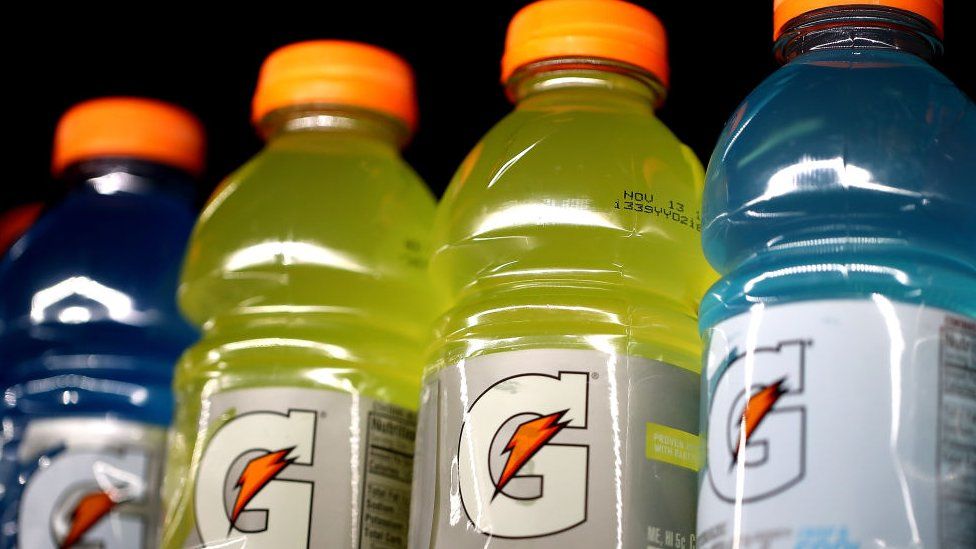Gatorade settles over 'misleading' Usain Bolt water game
- Published

Sports drink Gatorade has agreed to pay $300,000 (£220,000) to the state of California over an app called Bolt! which featured a character based on Olympic medallist Usain Bolt.
In the game Bolt had to drink Gatorade to enhance his performance while water slowed him down.
Attorney General Xavier Becerra said the game made "misleading statements" about water.
The app was released in 2012 and is no longer available to download.
It was only available on Apple's operating system and was downloaded 2.3 million times from 2012 to 2013.
It was briefly made available again in 2017.
Players were told to "keep your performance high by avoiding water" in a tutorial that accompanied the game, the Attorney General's office said.
In a statement Gatorade's parent company PepsiCo said the game was designed to "highlight the unique role and benefits of sports drinks in supporting athletic performance".
"We recognise the role water plays in overall health and wellness," it said, adding that it also markets bottled water brands.
Youth audience
Bolt! had an audience of mainly young people aged 13 to 24, the state added.
"Making misleading statements is a violation of California law. But making misleading statements aimed at our children is beyond unlawful, it's morally wrong and a betrayal of trust.
"It's what causes consumers to lose faith in the products they buy," said Mr Becerra.
Almost half the settlement ($120,000) will be used to fund research and education into water consumption and nutrition in young people.
PepsiCo said in a 2014 statement that it does not advertise in spaces where children aged under 12 make up more than 35% of the audience.
Analyst Jack Kent, from IHS Markit, told the BBC the app store market had moved away from "branded entertainment" and games connected to a particular ad campaign.
"Mobile is a primary channel for reaching a youth audience, and the rise of branded apps highlighted that, but now there is more focus on reaching users through existing mobile social, entertainment and media platforms rather than just through dedicated apps," he said.
- Published15 September 2017
- Published22 June 2017
- Published7 August 2017